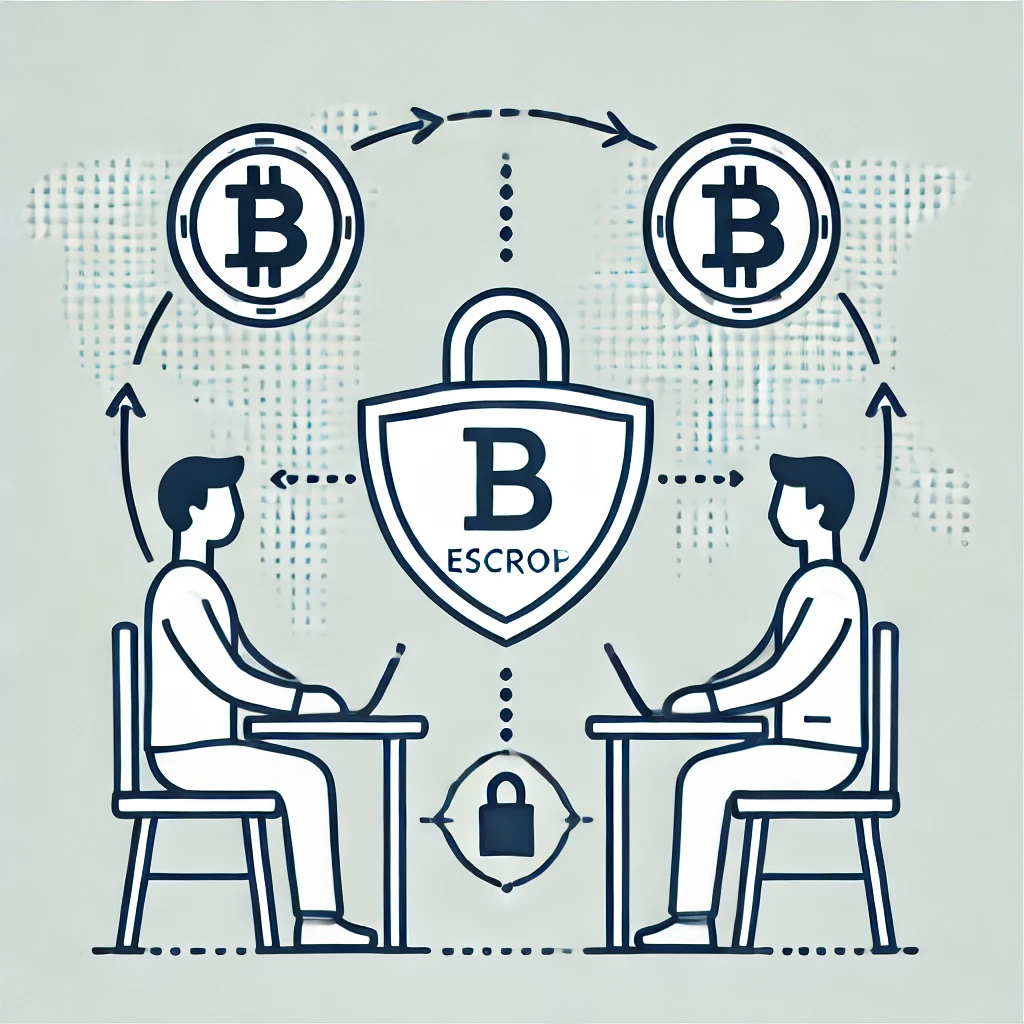
The world of cryptocurrency trading offers countless opportunities, particularly with the rapid rise in popularity. However, with these opportunities comes the risk of scams and fraud, especially in peer-to-peer (P2P) transactions, which often take place between strangers. Fortunately, this is where escrow services step in, providing a vital layer of security for both buyers and sellers.
In this article, we’ll explore the role of escrow services in reducing risks and ensuring fair transactions in P2P cryptocurrency exchanges.
What is P2P Escrow?
Simply put, escrow services act as a neutral third party that protects both buyers and sellers in a transaction. Both parties agree to let this trusted intermediary handle the exchange of payments, ensuring that the trade goes smoothly. This method is preferred by many because it offers a secure and trustworthy way to trade cryptocurrencies.
P2P escrow services generally operate on decentralized networks with minimal regulation, automating the process through smart contracts. This means there are no physical intermediaries, just a secure online system that oversees every transaction.
How Does P2P Escrow Work?
The process of using an escrow service in P2P trading is straightforward. Here’s how it works:
- Users post listings specifying the cryptocurrency they wish to buy or sell, along with their desired price and payment method. For example a user can post a listings in order to Buy Bitcoin with PayPal.
- Potential buyers browse these listings and choose a trading partner.
- The platform provides communication tools (such as a Chat window) and security measures (Trader Country, IP, VPN etc) to facilitate the trade.
- The escrow service temporarily holds the cryptocurrency until the buyer makes the payment directly to the Seller’s account.
- Once the seller confirms the transaction, the cryptocurrency is released to the buyer.
- The trade is complete, and both parties can leave feedback.
Although simple, this process is crucial for minimizing the risks of fraud and theft in P2P transactions.
Benefits of Peer-to-Peer Escrow Services
Peer-to-peer transactions are best completed using escrow services for the following reasons:
Decentralization
One of the major benefits of P2P escrow services is their semi-decentralized nature. Without a central authority overseeing transactions, users can trade privately and securely. This also reduces the risk of censorship, making it ideal for crypto traders concerned about privacy.
Security and Trust
Escrow services act as a neutral third party in transactions, holding both the buyer and seller accountable to the terms they’ve agreed on. This fosters trust, as both parties know their assets are protected until the transaction is fulfilled. In cases of disputes, the platform steps in to mediate, ensuring a fair resolution.
Some escrow platforms take security a step further by utilizing smart contracts and multi-signature wallets, ensuring that funds are only released when all conditions are met. This is comparable to how secure platforms in other industries, such as when you play casino with Bitcoin at Bovada, implement safeguards to ensure that transactions are processed smoothly and securely.
Lower Fees
Compared to traditional exchanges, escrow services typically charge lower fees, as there are no physical intermediaries involved. This is a cost-effective option for traders looking to save on fees while ensuring safe transactions.
Global Accessibility and Multiple Payment Methods
P2P escrow services offer global accessibility, allowing users to trade with others from around the world. This broadens the market, providing more opportunities and better pricing options especially in Underbanked and Unbanked countries. Additionally, these platforms support a variety of payment methods, including credit cards, e-wallets, cash, and even gift cards, catering to different user preferences.
Challenges of P2P Escrow Services
Despite their numerous advantages, P2P escrow services are not without challenges. For instance, while they significantly reduce the risk of fraud, they cannot completely eliminate it. Users should still conduct due diligence and verify the legitimacy of their trading partners before proceeding with a transaction.
Moreover, the liquidity on P2P exchanges can be lower than on centralized platforms, making it difficult to trade large sums of money at favorable rates.
Conclusion
Escrow services play a crucial role in the world of P2P cryptocurrency trading. By acting as a trusted intermediary, they offer the security and trust needed to facilitate safe transactions between buyers and sellers. Whether you’re a seasoned trader or new to the crypto world, using an escrow service can help you avoid common pitfalls and ensure a smooth, successful trade.